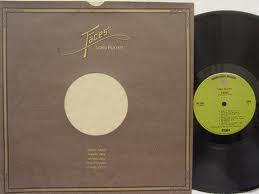After much
deliberation I have decided that the word that applies here is ‘Marmite’. It always interests me how words extend their
meaning over time and Marmite, despite being a trademark, is one of them. These days it refers not only to that sticky
black stuff that you spread on toast, but also to an attitude towards certain
things. If an object or concept is
‘Marmite’ it is generally understood to divide opinion into those that love and
those that hate – there is no half-way house.
Which brings us
inexorably to Coldplay and the problem that I have been wrestling with. Whilst I can readily appreciate that Coldplay
could be quite properly described as a Marmite band, this does not quite help
with my dilemma. You see, I’ve gone down
a level and have found that it is not the band per se as much as each individual song that is
Marmite. It’s the only explanation. For some time now, I have found that I am
cherry picking about half a dozen of their songs from their catalogue. These are the songs that I find utterly
uplifting yet I reject all their remaining material as dross.
Let’s not be
coy. Those on the list are the likes of
‘Speed of Sound’, ‘Paradise’, ‘Clocks’, ‘Yellow’ and ‘The Scientist’ and maybe
one or two more and they sit in a playlist on my ipod as shining examples of
modern pop. But that’s where it stops as
far as Coldplay is concerned as I’ve never really got on with the remainder of
any of their albums despite owning them all.
In all my years of music obsessive-ness, I’ve never known a band that
splits my allegiance on a song by song level to such a degree. It’s a bit un-nerving and if at the next
social function anyone asks me whether I like Coldplay, I’m not sure what I’m
going to say. I’ll probably open and
close my mouth a few times like a beached fish and fail miserably to construct
any sort of reasoned argument.
I suppose that when
it comes down to it, I find Coldplay a bit, well, boring in the way that their
fiercest critics propound and that would explain my antipathy to most of their
output. Yet, somehow, when their style
works, it works spectacularly well as in the list above. It seems that they tread a very fine line and
the spark that lifts them above it is a rare and splendid thing. Perhaps it is just as well that it is an
infrequent occurrence as it makes the results something to be savoured.
It just pains me to
think that I bought all those albums just for a handful of songs.

